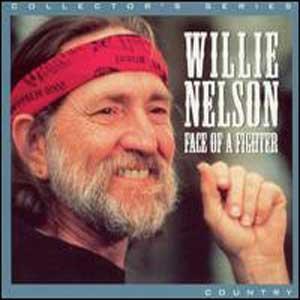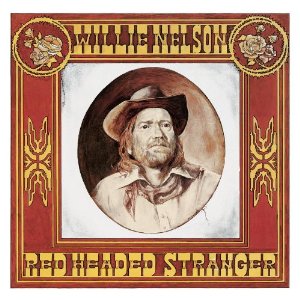WILLIE NELSON: THE ETERNAL ROAD WARRIOR
By PAUL FREEMAN [1993 Interview] [After reading our vintage interview with Willie, a true legend, be sure to get the latest news at www.willienelson.com and check out his new album, “Heroes,” due May 15.] At 60, Willie Nelson is still a restless soul. He has two young sons from his latest marriage, which has passed the four-year mark. But this country-road warrior shrugs off the notion of staying at home in Texas for too long a stretch. "I guess Mother Nature settles you down a bit through the years," Nelson says, resting in his homey tour bus. "But I really don't settle that well. I still like to travel and play music. That's sort of the opposite of settling down." A few years back, a $16.7 million Internal Revenue Service bill left Nelson feeling more unsettled than usual. He was forced to auction off his property in 1991. But the IRS has agreed to a $9 million settlement, and Nelson has already paid more than half of that. "I haven't missed a payment yet. As long as I don't, I'll be in their good graces," he says. And Nelson's latest album, "Across the Borderline," should prove to be a major financial asset. Artistically, it's among the best of his 35 albums. But he didn't consider the commercial potential while he was recording it. "The term 'commercial' is about what sold yesterday. It has nothing to do with what might sell today. You just have to allow intuition and creative freedom to take over." Country music, in general, has been taking over a healthier share of the music business. Nelson doesn't see this as a sudden boom but as a gradual progression. "The audience has been getting bigger all along," he says, "back to decades ago when Marty Robbins crossed over with 'White Sport Coat' and Ray Charles did a country studio album. Then Bing Crosby, Frank Sinatra and Perry Como were recording country songs. That opened it up to a whole new audience that used to think of country music as some hayseed in a tractor. "Today, Billy Ray (Cyrus) and Garth (Brooks) and all those guys are bringing in younger people. With each generation, we pick up a few more." Some country fans complain that, with all the new blood, old favorites receive only anemic attention. "I've heard it said that country audiences aren't as loyal as they used to be. I don't know that that's true," Nelson says. "But there are a lot of good country singers who don't have a label and aren't getting played on the radio stations. There seems to be a little clique of programmers ignoring a lot of veteran talents. "That won't last, because those stations won't be successful. If you don't play historical artists like George Jones and Hank Williams, the people who have made country music what it is, you aren't going to hold your audience. "Instead of just playing music that's here today, gone tomorrow," he continues, "they should be playing Merle Haggard more, Ray Price more. I think young fans will start asking for that music. Maybe these youngsters can educate the people who run the radio stations, let them know it's pretty dumb to say, 'I'm not going to play anybody who's over 40.' " Smart programmers find that Nelson's new album fits into several formats. "Across the Borderline" features guest appearances by many non-country performers, including Bonnie Raitt, Bob Dylan, Paul Simon, Sinead O'Connor, David Crosby and jazz pianist Mose Allison. Nelson has never been afraid to cross musical borders.
"Good music is good music," he says, "whatever the category. I think the day is coming when you'll be able to turn on the radio and hear everything on one station -- pop, country, jazz, blues, rock, gospel -- one right after theother. I believe that's still the best programming. Why isolate listeners?" A broad range of listeners is enjoying "Across the Borderline," which was produced by Grammy winner Don Was, who is known for his collaborations with Dylan, Raitt and the B-52s. "I had a lot of confidence in Don," Nelson says. "I like the way he takes the voice and an instrument and builds on that. To me, that's the way to record." For the Nelson album, Was chose songs written by John Hiatt, Ry Cooder, Lyle Lovett, Willie Dixon, Peter Gabriel, Dylan and Simon. Simon himself had tried to convince Nelson to record "Graceland." "Before he had released the song," Nelson recalls, "he kept after me to listen to it, sent me a tape. I just didn't hear it for me, so I passed. It wasn't until I went into the studio for this album and was reading the lyrics and singing them at the same time that I realized that it was more than just a song about somebody going to Graceland. It worked for me perfectly. But it took Paul's persistence. He's a stubborn Taurus, like me." The contribution of another stubborn performer, O'Connor, is a striking duet of Gabriel's "Don't Give Up." "There was another lady, Dolly Parton, who was supposed to do that part, but she ended up being unavailable. At the rehearsal for the Dylan tribute show in New York, Don suggested Sinead. I said, 'Great. Can she sing?' I'd heard about the controversy with the Pope, but I'd never heard her sing. Don said, 'She's excellent.' It turned out that she and Peter Gabriel were friends and she already knew the song. "At the concert, she was booed for the controversy. I asked her, 'Are you sure you still feel like coming in to sing tomorrow?' She said, 'Yes, I'll be there.' She came in the next day and sang her ass off.'" Nelson and Dylan share songwriting credit on the song "Heartland." "Through Don, Dylan sent me an instrumental track. He hummed all the way through it. There was just one word -- Heartland. That one word was enough for me to know it was supposed to be a farm song. So I wrote the lyrics." Nelson, founder of the Farm Aid benefit, is passionate about the plight of the farmer: "Just as we took the land away from the Indians, we're taking it away from the ranchers and farmers of this country. We've chased 7 million small, family farmers off their land since the '30s. We have less than half a million left. Eventually all the land will be owned by big corporations. It's just another case of the big ones eating the little ones." Unfortunately, Nelson isn't all that optimistic about turning the situation around. "It won't happen as long as the big money is lobbying against it, as long as we have a bunch of Democrats and Republicans in the Congress saying, 'OK, what are we going to disagree on today? Let's make damn sure nothing happens, because the people who pay us want to maintain the status quo.' It would be interesting to see how many of these politicians have received huge contributions from the large food corporations. Nothing's going to change as long as the American public remains gullible and too busy with their own problems to think about it." Nelson wrote the "Valentine" and "Still Is Still Moving to Me" songs on the new album. He's not as prolific as he once was; he has written approximately 2,000 songs, including such standards as "Crazy," "Night Life" and "Funny How Time Slips Away." "I've become too self-critical," he says. "I compare what I'm writing today with things I wrote earlier. That's really not fair, and it stops me from following through on ideas. ... "Also, I'm terrible about self-discipline. I know I could write more if I took a month off, got in my car or on my horse or my bike and spent days by myself somewhere. That's the way I used to write, before I had the buses and the tours. Now I'm surrounded by people most of the time. I should cut down on the touring, but I love it too much." The cheers of the crowds still excite Nelson, who struggled for years to be in a position to hear them. In the '60s, Nashville welcomed him as a songwriter but didn't offer much hope that his distinctive voice would appeal to the record-buying public. When he returned to his native Texas in '71, the country-music establishment wrote him off. Instead, he soared to success with the outlaw look and attitude, earning raves for his concept album "Red Headed Stranger." The trailblazer's maverick ways have made it tough to create a stable personal life. The father of four, the eldest of whom is 32, Nelson has been married four times. "Just because one doesn't work," he says, "doesn't mean you shouldn't look for another. To me, it's important to have a home base, so I keep trying to keep one." Just don't expect to see Willie Nelson in a rocking chair on the porch, though. "I keep joking about getting a little one-pump service station down in Texas somewhere, putting an out-of-order sign on the pump and just relaxing. It's nice to think about, but I'll never do it, because I just enjoy the road too much. "If I ever did retire," he says with a chuckle, "I'd probably get sick and die." |

